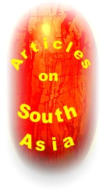
Do We Need Anonymity For Surfing Like The Laws
For Phone Tapping?
The recent phone tapping issue not only closed UK’s paper, News of
the World, and left its innocent workers at disarray, but it also incited a
clash between the border disregarding merchants (Rupert Murdoch's
empire) and the border defending politicians. Almost reminding one of
Clash of civilizations, a Hindu could easily see a clash between
Kchhetrias and Vaisyas. Although the paper died, after the clash,
BSkyB suddenly survived.
Although exposure through phone tapping has grabbed headlines in
the surviving papers, ‘human nakedness’ during surfing the Net has
never grabbed much. The biggest lie, ‘Surfing the Net in private’, still
mimics Gospel truth. Although we cherish our privacy and the
explosion of the Net and concepts emerging from it have partly come
through the privacy that it offers us, it is essentially ‘pseudo privacy.' In
fact, it is almost reminiscent of replacing God. Big Brother sees all that
we do in that ‘private’ moment. Suddenly we have never been so
much exposed in our entire history, even when primitive tribes are
included - as a dismayed Pakistan has come to know.
This Big Brother has octopus like tentacles:
1. The visited websites and their cookies
2. The Internet service provider
3. The Hackers
4. PC repairer or buyer.
Although our credit card details are secure, our IP addresses (the
place from where you are surfing), personal emails, visited pages, the
details in the filled forms, buying details, and the stuff downloaded in
our PCs are all ‘captured.' Unprotected data transfer is a feast for
hackers. Although downloaded data preserved in our PCs helps in
catching law breakers, beyond exposing our hypocrisy, they damage
us in more ways than one.
Although these make us look so vulnerable, it is not that safeguarding
factors aren’t available.
1.Proxy address use: In this method, surfers use proxy IP address
instead of their own IPs. The visited site sees the proxy IP’s location
and easily gets fooled.
2. Anonymous search: Although search engines keep our search data
(that is how you get previously searched keywords in their pages),
http://www.ixquick.com uniquely deletes data after 48 hours.
3. Encrypted data transfer: While use of a wired modem is safer than
a wireless one, unprotected data from the latter is extremely
dangerous - more so when bank transactions are done. While
username and password protects data from routine offenders, a
tunneled data transfer through the Net avoids prying eyes of both ISPs
and hackers. Encryption of data offers the better protection. Credit
cards use 28 bit encrypted data transfer and even a 3D system for
added security. Next






‘Knowledge is power’





WEB PAGES
OUR OFFERING
UPLOADED ITEMS
OUR EMAIL
kri200@womenspowerbook.org
QUESTION
Raise the vol to listen to the
lady airing awe @ the SINGLE author encyclopedia
World’s
encyclopedic
knowledge
compacted
in
your
hand
1 2
You might also like:
Newsletter, Metropolitan Police, Oct 2004 ‘Through A Rapist’s Eyes’
Mystery of the ancient kingdom discovered in Nepal
The Economist Blames Modi and Supports Rahul as Lesser Evil in the Eve of the Indian
Election 2014: A Rebuttal



Empowering Book Newsletter






WOMEN’S POWER: ITS PAST, ITS PRESENT, ITS FUTURE: FEMOCRACY


















